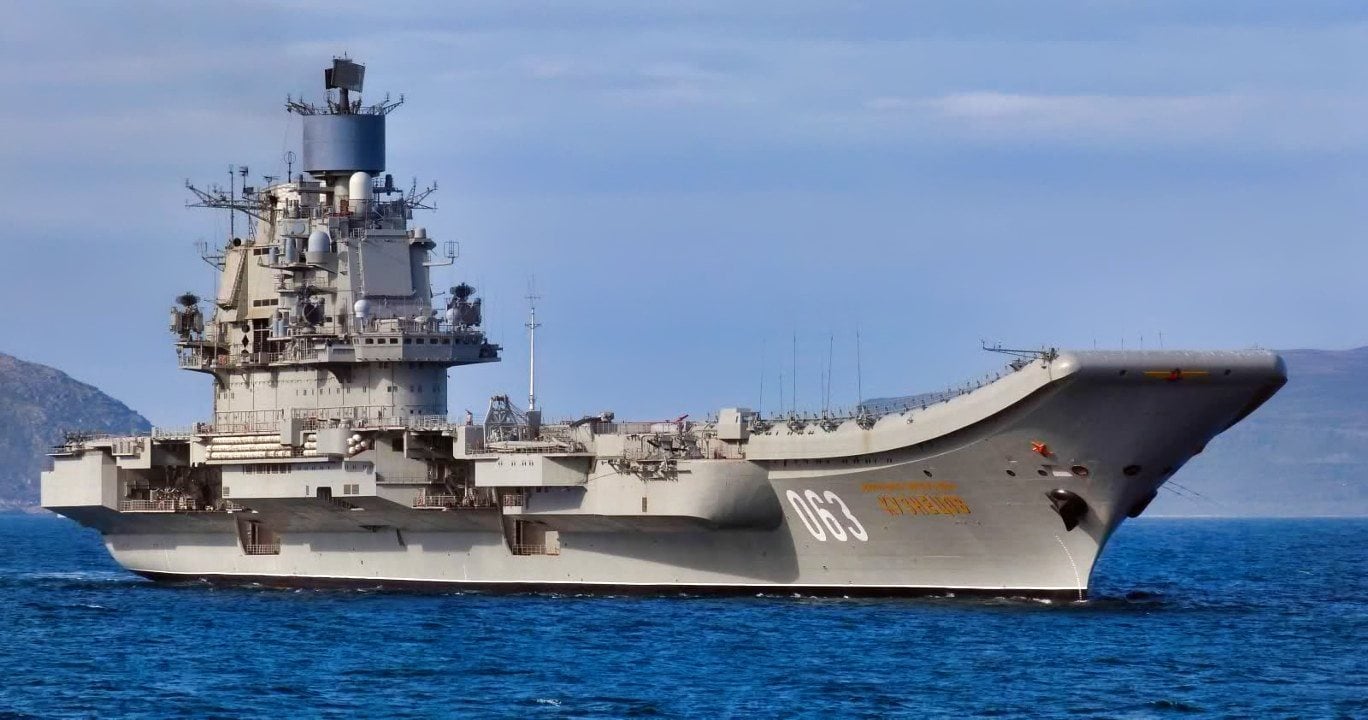Navy Nightmare: China and Russia Build Aircraft Carriers Together
Summary: As China continues its ambitious naval expansion, speculation arises regarding potential collaboration with Russia in building aircraft carriers. Some analysts suggest such cooperation could benefit both nations, potentially altering global naval power dynamics.
Summary: As China continues its ambitious naval expansion, speculation arises regarding potential collaboration with Russia in building aircraft carriers. Some analysts suggest such cooperation could benefit both nations, potentially altering global naval power dynamics. China's growing carrier fleet, though not on par with the U.S., enhances its regional influence. Collaborating with Russia could further bolster its capabilities. Meanwhile, Russia, lacking modern carriers, could gain from Chinese assistance to fulfill its naval ambitions. However, skepticism remains about the likelihood of such collaboration, with doubts over strategic alignment and resource allocation. Despite shared interests, alternative methods may prove more viable for both nations in challenging U.S. dominance.
The Aircraft Carrier Alliance Between Russia and China?
China is deepening its strategic partnership with Russia, and at the same time, Beijing is aggressively working to expand its naval capacities. Some observers are beginning to wonder whether the two revisionist nations might soon collaborate on building aircraft carriers.
As Brandon Weichert argues, naval cooperation between Russia and China would be mutually beneficial. It would allow the two nations to perhaps tilt the global balance of naval power.
Benefits for China
China is in the midst of one of history’s most ambitious shipbuilding sprees. It already possesses three aircraft carriers, with a fourth on the way. And while the Chinese carrier fleet is nowhere near as sophisticated, large, or generally capable as the U.S. supercarrier fleet, it has augmented China’s ability to deploy airpower abroad.
China has shown itself willing to build an expansive aircraft carrier fleet. Here, outside collaboration could be helpful, especially when chasing the United States. Aircraft carriers are expensive, and the U.S. has 11 supercarriers. China would have a hard time, even with Russian assistance, building a fleet that is the peer of the United States’. But augmenting its carrier fleet would help China assert itself regionally and back its aggressive territorial claims throughout the Indo-Pacific.
Benefits for Russia
Russia does not have a single functioning aircraft carrier at the moment. The Admiral Kuznetsov is an outdated dog, running on black-smoke-belching Mazut and sailing with a tugboat escort. The Kuznetsov has been under repair for several years, leaving observers to wonder whether she will ever sail again. Regardless, the Russians clearly need help developing and maintaining a carrier fleet – that is, if a carrier fleet is any kind of priority to Moscow.
Russia does have a history of naval ambition, “yearning to become a dominant naval power since the time of Peter the Great,” according to Weichert. But a lack of warm-water ports has always held the Russians back, and so has their inability to create a reliable aircraft carrier. Perhaps with Chinese assistance, the Russians could expand their aircraft carrier capabilities.
How Likely is an Aircraft Carrier Collaboration?
According to Weichert, China’s ambition to become one of the world’s dominant weapons manufacturers, paired with Russia’s desire to become a naval power with their own carrier fleet, means these two nations may well collaborate to build carriers together.
“Russia wants [aircraft carriers], and China is proving it can mass-produce [aircraft carriers],” Weichert argues. “China wants Russia to be more of a fly in the strategic ointment for the United States. Beijing sees Moscow as a means to distract and drain the U.S. military, boosting China’s ability to accomplish their own revanchist goals in their part of the world.”

That may be so, but I’m less certain. I am not convinced that Russia and China are so strategically aligned that they would embark on the world’s first multi-nation aircraft carrier-building effort. I’m not convinced that China would invest its own resources to expand Russia’s naval prowess. There are cheaper, more efficient, lower-risk, and more effective ways to facilitate Russia’s disruption of U.S. objectives.
About the Author: Harrison Kass
Harrison Kass is a defense and national security writer with over 1,000 total pieces on issues involving global affairs. An attorney, pilot, guitarist, and minor pro hockey player, Harrison joined the US Air Force as a Pilot Trainee but was medically discharged. Harrison holds a BA from Lake Forest College, a JD from the University of Oregon, and an MA from New York University. Harrison listens to Dokken.


